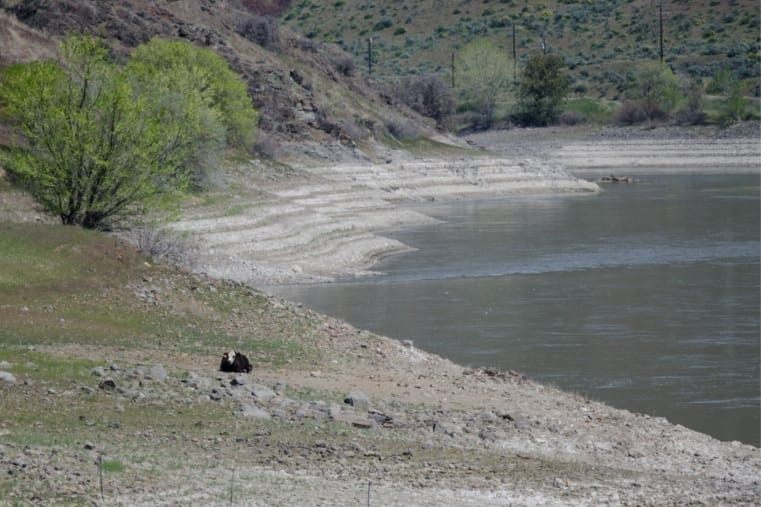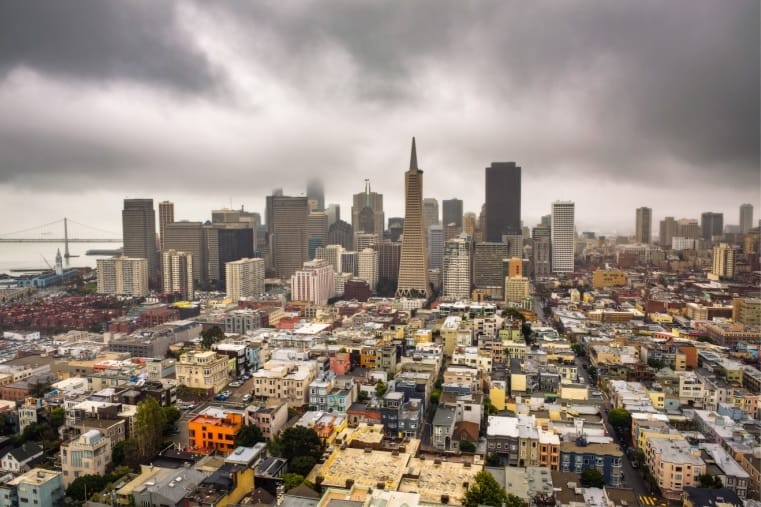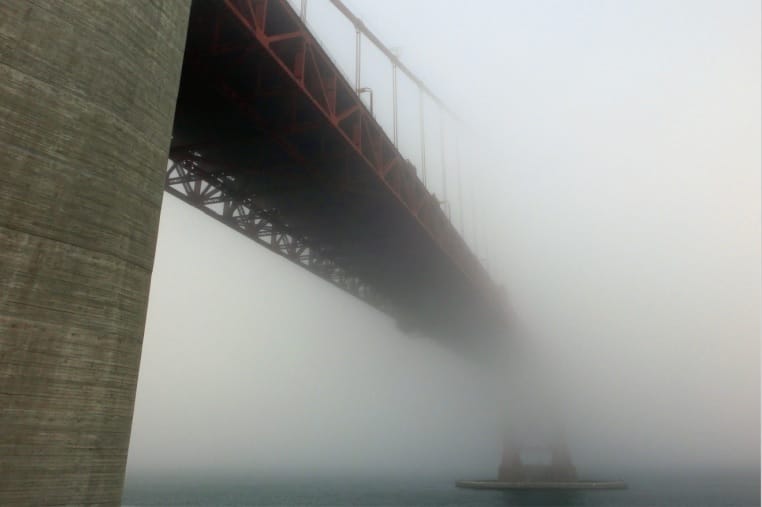
Now that we remember what rain looks like, what do we do with it?
I’m sure you’ve seen the weather lately. It’s been raining on and off since mid-November. Soaking rains washed over the Bay Area these past couple weekends, reminiscent of wet seasons past. Forecasters say another storm system should move in this Friday.
It is hoped this seemingly plentiful rainfall will reduce the impacts of California’s devastating drought. Santa Clara Valley Water District representative Matt Keller says that, while promising, the storms are not enough. “As far as what we’ve seen, it really is just a drop in the bucket,” Keller told KPIX reporter Chris Fehely. “We’d love to see a wet pattern like this…these are really great storms for us, but we need to see a lot of them, all the way through May.”
I doubt Keller thinks this will happen. Expecting frequent, steady rains from now through the month of May is wishful thinking at best. Even after the recent storms, reservoirs throughout Northern California remain around 80% empty. Climatologists fear the persistent drought may be the state’s “new normal.”
The slow disaster of human-induced global warming is permanently changing California in ways we’re reluctant to accept. It’s foolish to hope everything should go back to “the way things were” while doing nothing to address Right Now. Scientists agree it’s too late for anything short of a miracle. And yet this seems the prevailing attitude, at home with our water, and City Hall with our housing crisis.
How did we get here?

The state has been languished in drought for so long, trees have grown from the bathtub rings at this small reservoir. Cow for scale.
Who deserves to be a San Franciscan? For now, and until the water crisis worsens, local property owners and politicians decide. Landlords and elected officials desire above all a wealthy voter base; constituents with needs are inconvenient as they are irrelevant. The city’s motto is an ‘All Are Welcome Here’ sign with ‘Restroom for customers only’ scrawled underneath. For a while it seemed there was no end to the influx of customers. This metaphorical coffeeshop was full.
But times have changed. Global warming’s consequences are more apparent now. Fewer people commute because the ends no longer justify the means. The work-from-home movement drained downtown of its lunch-hungry office workers, sapping the fuel from the pre-pandemic financial district machine. In a matter of months, COVID-19 did to San Francisco what the drought is slowly doing to California. We may never see the return of normal winter rains. Likewise, San Francisco might never restore its economy to exactly as it was.
The San Francisco of today is in-league with New York and Los Angeles for the highest population of unhoused people. Interestingly, these same cities rank highest in office vacancy rates. San Francisco’s Live-Work-Love downtown residents have all but vanished completely. Encampments line the streets while offices and luxury apartments sit empty and unrented. Like staff writer for the Atlantic Jerusalem Demsas said, “This is what policy failure looks like. At some point, someone’s going to have to own it.”
What are we doing about it?

Look at all those mostly vacant office buildings. I wonder how many residents they could hold if certain restrictions were lifted.
Post-lockdown San Francisco is operating with pre-pandemic expectations. Mayor London Breed only recently shifted focus from shaming those working at home to luring newer, more stationary industries downtown. Luxury condos, asset reservoirs for the rich and famous, loom high and dry over the city. It saddles me with secondhand embarrassment, seeing these monuments to opulence built in defiance of the world around them. While countless people sleep unhoused in its shadow, 706 Mission, a 45-story, 146-unit building, stands at just 8.9% occupancy.
It’s not just downtown. All over San Francisco, apartment vacancies skyrocketed as more people chose to work from less expensive homes. According to the Chronicle, “San Francisco saw the nation’s biggest percentage population drop of 6.3% among all cities between July 2020 and 2021, a plunge of more than 54,000 people.”
San Francisco’s overblown liberal image conceals a quietly booming conservative party, cranky now that big tech’s teat has dried up. Complaints about downtown’s vacancies ignore the thousands of people already living there, in shelters, under bridges, on the streets. I’m not suggesting we plop an unhoused person with schizophrenia in a penthouse, but let’s unpack why that sounds outrageous.
Something ugly emerges from within when we entertain granting housing in any form to people experiencing homelessness. You might catch yourself on the cusp of saying Hell, I deserve a goddamn condo before some addict. Hell, you probably do. Maybe you worked hard to get where you are. This isn’t about that. It’s about the bare-minimum right to a bed and a roof overhead, and how local government seems bent on disagreeing. And this may surprise you, but people on drugs deserve housing. Be sure to scrub any beliefs to the contrary from your body during your shortened, drought-conscious shower.
Where are we going?

Sometimes San Francisco’s future feels more uncertain than ever.
Sustainability means nothing to people who don’t plan on sticking around. That’s how I tell who’s in it for San Francisco versus who’s just here to make money. The more long-term their plans, the more compelled I feel to invest, whether it’s a vote, a donation, a friendship. My love for SF runs deep. My patience for its politics however has nearly expired.
I worry my mistrust may ultimately blossom into the sort of exasperation that overrides common sense. Would people approve a tax increase if it funded construction of a desalination plant, or a citywide rain catchment system? Costs up-front would be massive, and the benefits, while practically ensured, could take years to realize. Even though it would make San Francisco cutting-edge in terms of drought management, I can totally see taxpayers voting ‘no.’
What’s killing San Francisco isn’t its homeless population or even the drought. It’s the city’s myopic politicians currently profiting off disorder, like recalcitrant farmers unwilling to grow hardier, slightly less profitable crops. “No one is buying downtown condos anymore.” That’s because your typical pre-COVID FiDi/Soma tenant is a thing of the past. So is dependable rain, privacy, and the version of San Francisco that existed before the pandemic. Drought will force us all to adapt, and we will, because everyone needs water. Why can’t we admit the same is true for homes?
The post Can The Drought Teach Us About San Francisco’s Housing Crisis? appeared first on Broke-Ass Stuart's Website.







